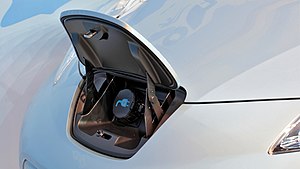In an exciting clash of great British institutions, the Guardian’s George Monbiot has taken the BBC’s Top Gear to task over their review of electric cars. You can guess most of it – Top Gear promotes all that threatens safety and the environment, the Guardian takes life too seriously and should relax once in a while. Both these things are true.
Monbiot is wrong though. I watched that episode, and I don’t think it set out to grossly mislead. Yes, the Nissan LEAF running out of power in the city of Lincoln was staged. But everything about the program with the exception of the laptimes – and I’m not even sure about those – is staged. They drop pianos on Morris Marinas, any caravan they come near inexplicably catches light, and if they get an electric car you can be sure the battery will go flat. The programme is blatantly childish, and this is part of its attraction.
“But the point is that it creates the strong impression that the car ran out of juice unexpectedly,” claims Monbiot, “leaving the presenters stranded in Lincoln, a city with no public charging points.”
Well I for one did not get that strong impression. I saw it as Clarkson and May taking off without considering how they were going to charge up, like fools. It was silly, but it highlighted some practical problems with electric cars – problems programmes with an environmental brief are perhaps too happy to make light of in a different sense. To be out of charge in an electric car could make you long for the simple days of a hike with a can to a distant filling station.
Is there any real danger of that? When new, the LEAF has a claimed range of 160 km (100 miles). And though in practice you’d rarely if ever be charging from completely flat, a full recharge at ordinary voltages for Europe will take around 8 hours. (A figure of 11 hours under some conditions was mentioned on the programme, but that does seem to be misleading.) This isn’t actually bad at all. It means it’s capable of a daily commute of anything up to a hundred miles each way if you can recharge at work, which sounds like more than almost anyone would ever want. However it’s not allowing for the unexpected – which always happens. So for a comfortable margin of error you really want to be travelling only half that far, at least until a network of fast-charging stations becomes a reality.
But that’s still absolutely fine for about 90% of the journeys that cars actually make. So when the Top Gear team conclude that “electric cars are not the future” (and that that future is – somehow – hydrogen), they’re clearly wrong. Already a practical proposition for a lot of people, the electric car is the present.
The future is probably no cars at all.
Related articles
- Nissan’s Leaf To Home Turns Electric Car Into Energy Battery For The Home (energyrefuge.com)
- Sorry, but electric cars are a waste of space (dailymail.co.uk)
- Nissan blasts Top Gear for misleading Leaf EV critique (slashgear.com)
- Nissan hits back at Top Gear (telegraph.co.uk)

